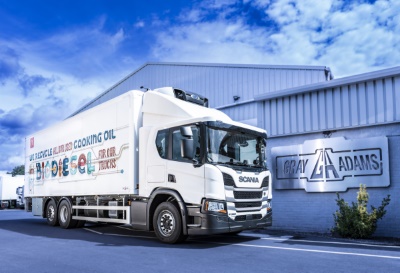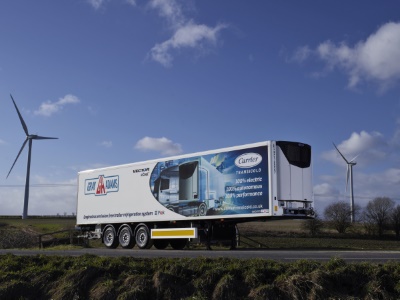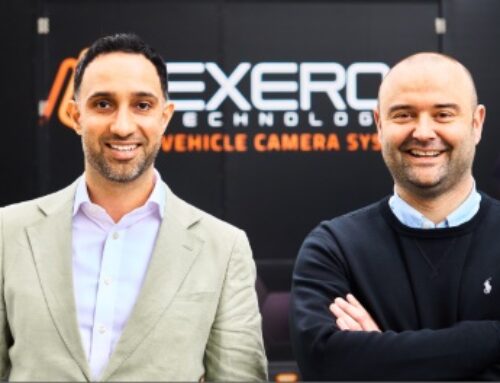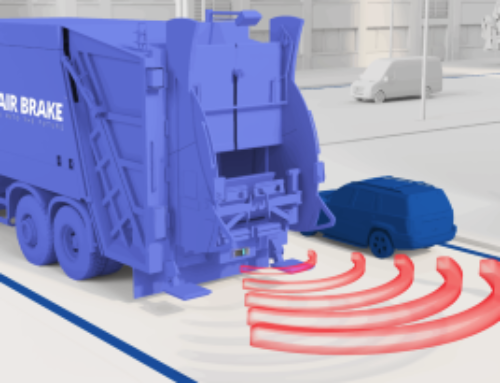Gray & Adams: driving cold chain innovation
 Temperature-controlled trailer and vehicle specialist Gray & Adams has emphasised the need for innovation within the sector in the context of an ever-changing marketplace, and offered its perspective on how it can be implemented effectively.
Temperature-controlled trailer and vehicle specialist Gray & Adams has emphasised the need for innovation within the sector in the context of an ever-changing marketplace, and offered its perspective on how it can be implemented effectively.
“As society changes, so does the way we procure food, impacting how the cold chain services the market,” said Andrew Brown, Gray & Adams Doncaster sales director.
“For instance, the relative decline of the out-of-town superstore has led consumers to shop once a month, in smaller outlets and convenience stores. Therefore, the need to service smaller stores has led to an increase in urban semi-trailers. The urban semi-trailers have a greater capacity and accessibility than a typical 18-tonne rigid, allowing the driver to deliver more products at a similar cost, which is more efficient.
“This race for volume is similarly mirrored at the opposite end of the spectrum where the use of the double-deck trailer has become widespread in UK trunking and store delivery. These semi-trailers can deliver 44 GKN pallets as opposed to 26 on a standard 13.6m and are available in single and multi-temp options. The safe use of large vehicles on the high street and their interaction with the public has led to a sharp rise in 360-degree cameras, cycle sensors and low-height cabs all to improve both driver and pedestrian safety.”
The withdrawal of the red diesel concession in April 2022 and the drive for net zero is one of the biggest challenges the industry faces, adds Andrew.
“On rigid vehicles, for instance, the drive for electric refrigeration has increased from five per cent to over 70 per cent in the last four years,” he continued.
“The truck-driven units are quieter, cleaner and either as powerful or more powerful than their diesel equivalents. This new technology can also be utilised with the latest fully electric chassis cabs, giving zero emissions at the tailpipe.
 “With regards to trailers, both regenerative battery technology and solar, are both options that are currently available. This new technology allows the trailer to operate autonomously in the operation, similar to diesel equivalents, allowing ease of journey planning in a mixed trailer fleet.
“With regards to trailers, both regenerative battery technology and solar, are both options that are currently available. This new technology allows the trailer to operate autonomously in the operation, similar to diesel equivalents, allowing ease of journey planning in a mixed trailer fleet.
“However, infrastructure, particularly substations, remains a considerable problem when adopting an all-electric fleet. Aerodynamics and more efficient trailers that have a greater capacity also contribute to a fall in operations and overall carbon footprint. Many food service companies are also utilising the underside of the vehicle to carry waste food products, cooking oil and other recyclable materials.”
He said: “Refrigerated distribution fleets are expensive and a long-term investment. Many of the trucks built today could well be operating in 10 to 15 years in a post-diesel environment. Therefore, it is important to ensure that your fleet incorporates the very latest environmental technology. By investing in high quality, and costing for a midlife refurbishment programme, you will extend the life of the fleet and equally importantly the asset.
“My advice to anyone looking to invest in refrigerated transport is to make sure your supplier is financially sound, ensuring they can offer support for the lifetime of your asset. Above all ensure your supplier works collaboratively with you, to make sure your asset meets your operational, environmental and safety needs.”
Gray & Adams cites its reputation for working collaboratively with customers to build robust, sustainable solutions, and says its team ensures that customers are continuously informed on the pros and cons of each bespoke component they choose for their fleet, getting the best for their operations with the purchase.
“Not only do we put innovation at the heart of everything we do, but trust and integrity are a key component for us, resulting in great customer loyalty at Gray & Adams,” Andrew added.
“If we don’t think something is the right route, we’ll discuss and advise rather than push to get the sale through as quickly as possible. Our culture is one of the reasons we have been so successful for the last 65-plus years.”












